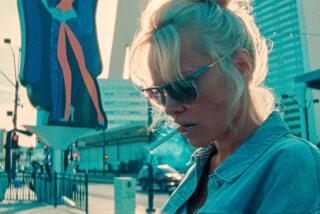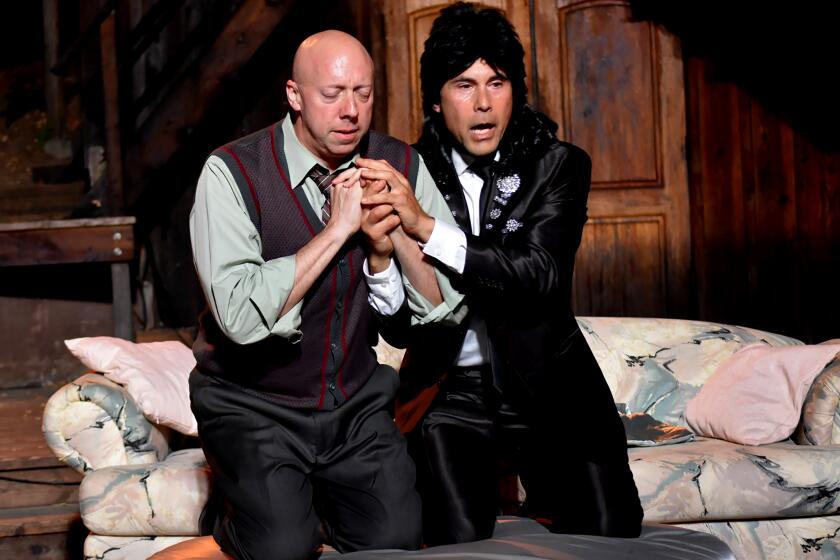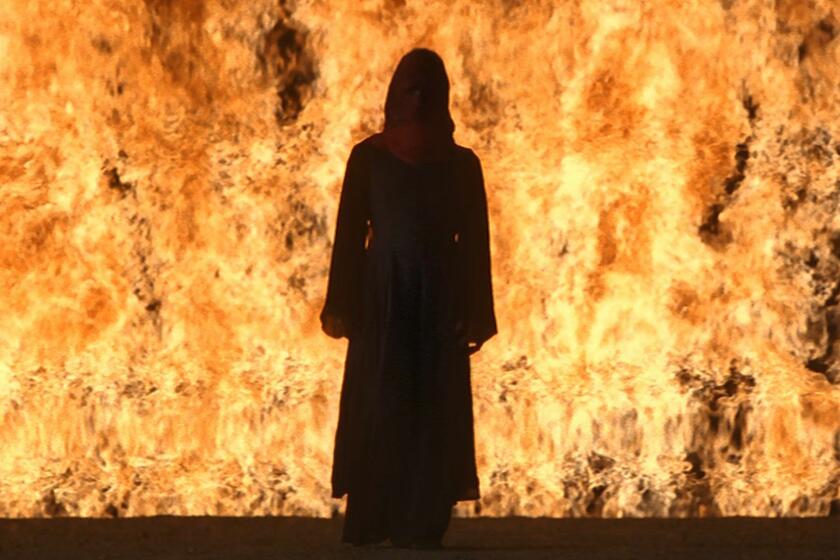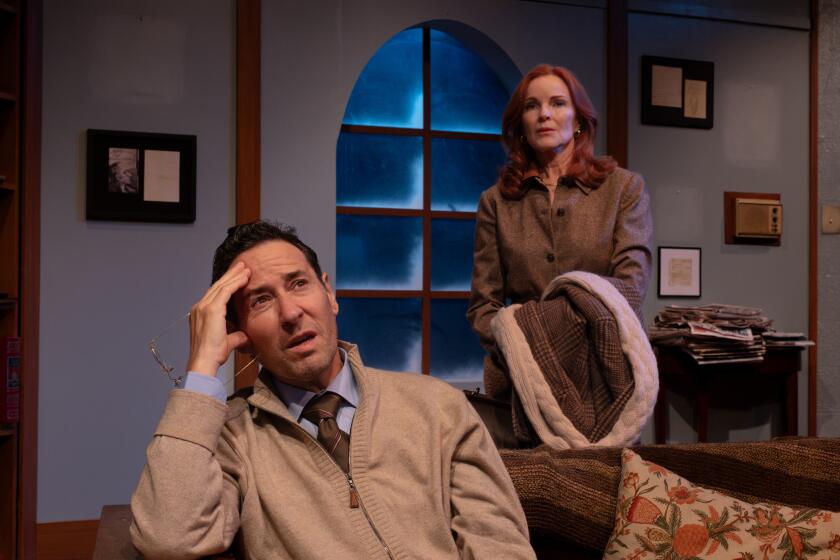Plugged in, Ethel lacks electricity
From the genre-bending, irony-happy New York downtown music scene comes a string quartet that calls itself Ethel. Not Ethel String Quartet -- just Ethel.
Naturally, it is not your Aunt Ethel’s idea of what a string quartet should be. But Ethel is expanding and developing a tradition that the Kronos Quartet established some three decades ago, bringing the string quartet into areas that ensembles of old either disdained, didn’t know about or hadn’t conceived.
With mandatory irreverence, Ethel’s publicity babbles about listeners being “enveloped by the sounds of amplified strings as they are taken on an intense muscular ride of arena-rock proportions.” But listeners need not have brought earplugs to the Southern California Institute of Architecture in the former Santa Fe Freight Depot downtown, where Ethel made its Los Angeles debut Saturday afternoon.
It was hard to determine whether Ethel was deliberately tailoring the comfortable volume level to the perceived audience at one of the Da Camera Society’s Chamber Music in Historic Sites concerts. Yet a valuable point was made. Ethel’s use of amplification is not about volume for its own sake but for creating specialized sonic environments, using varying amounts of reverb and equalization to change the space (the group even travels with its own “sound designer”). Moreover, the sound quality was exceptionally good -- plush, creamy, undistorted, the cello growling with a warm, full, bass underpinning through the big speakers.
The seductive use of amplification may be Ethel’s most distinctive contribution to the Kronos tradition, at least on this given occasion. Also, violinists Todd Reynolds and Mary Rowell, violist Ralph Farris and cellist Dorothy Lawson are fun to watch; they visibly enjoy making music, and they don’t hold it back. Especially the blond-tressed Lawson, who smiles, gestures, shoots incredulous looks and lustily stamps her boot on the floor when called for.
Musically, though, Ethel didn’t venture very far out on a limb; there was little that gave the ear a tough workout. The members do indeed like to play the blues, a feeling established in the very beginning by the repetitive cells, glissandos and mad bluesy shuffle of John King’s “Sweet HardWood” and continued by Evan Ziporyn’s less-inventive “No Return.” Victoria Bond’s “But on the Other Hand” paid effuse, timely tribute to the late Ray Charles, violins and violas twittering and sliding about over a strict walking bass line by the cello.
Reynolds served up three pieces of his own, “Too Soon to Tell,” “The Solution” and “Alap”; the latter two developed into the shape of an Indian raga, gathering speed and momentum in an attractive translation of the form.
We should have heard more of Phil Kline’s “The Blue Room” than just two excerpts, in which loops of the instruments combined with the live sound to form lush landscapes and swaggering, swinging grooves.
With a Rowell transcription of seminal jazz pianist Lennie Tristano’s “Requiem,” it was back to the blues in the middle section, performed with slippery abandon, and Marcello Zarvos’ “Memory” developed like a sweet memory turned violent. Finally, Timo Alakotila’s “Pelimanni’s Revenge” was nothing but a relaxed four-way fiddle tune from Finland, an amiable way to close.
More to Read
The biggest entertainment stories
Get our big stories about Hollywood, film, television, music, arts, culture and more right in your inbox as soon as they publish.
You may occasionally receive promotional content from the Los Angeles Times.






